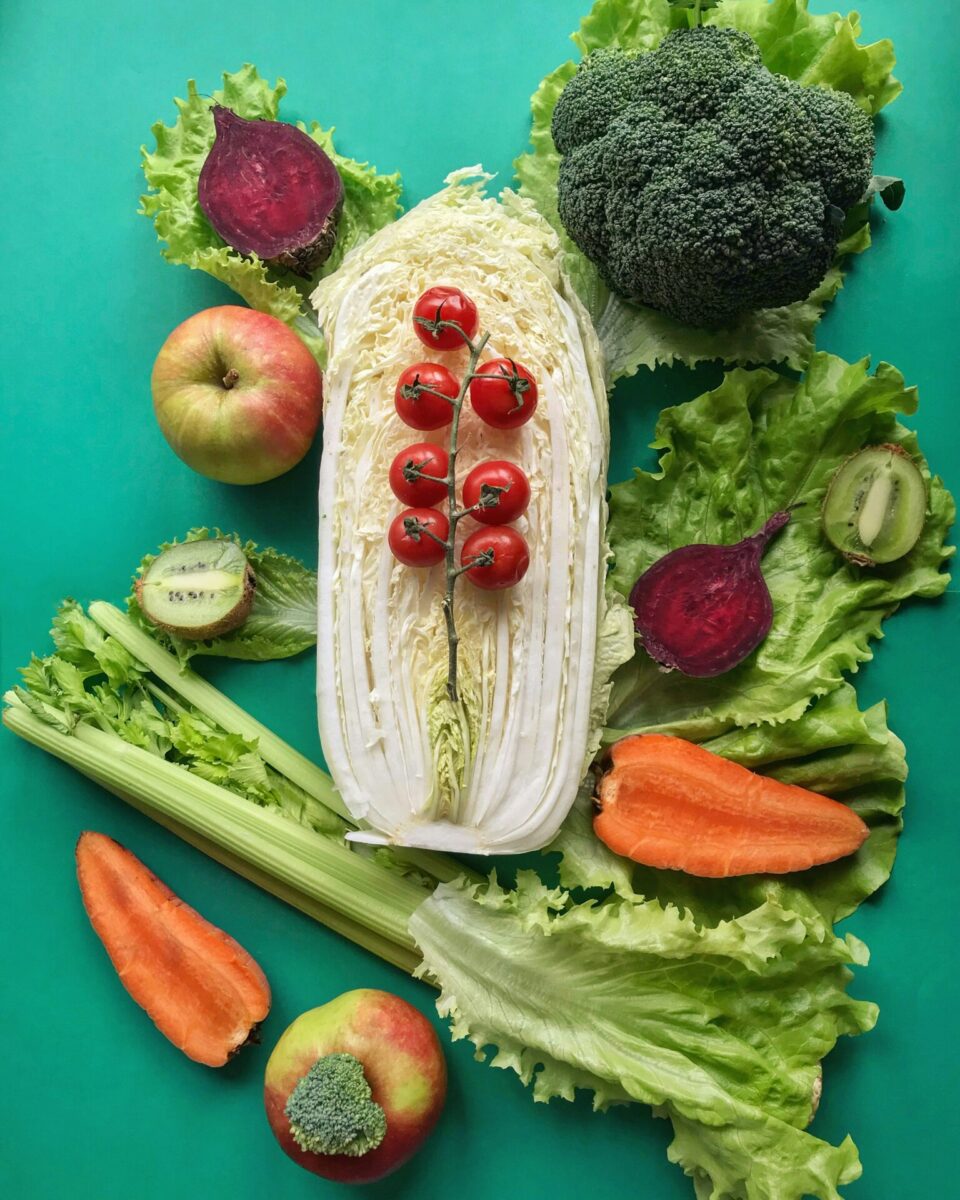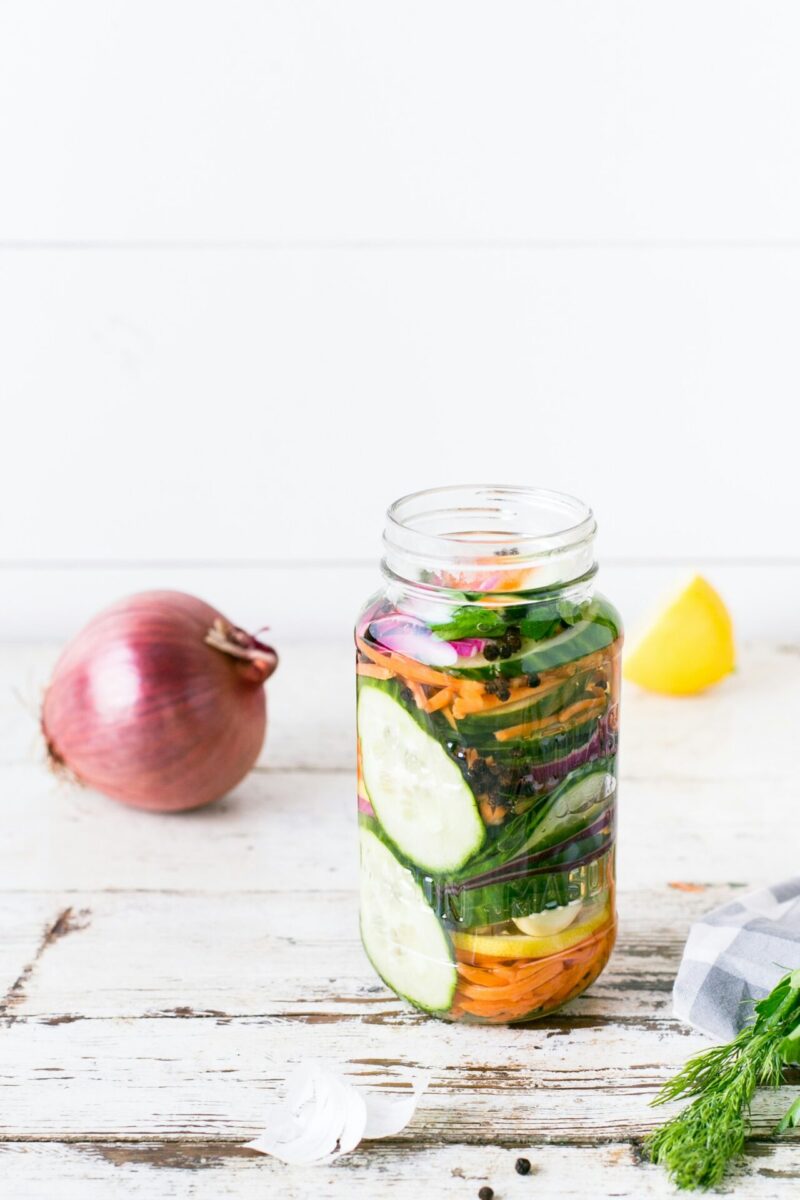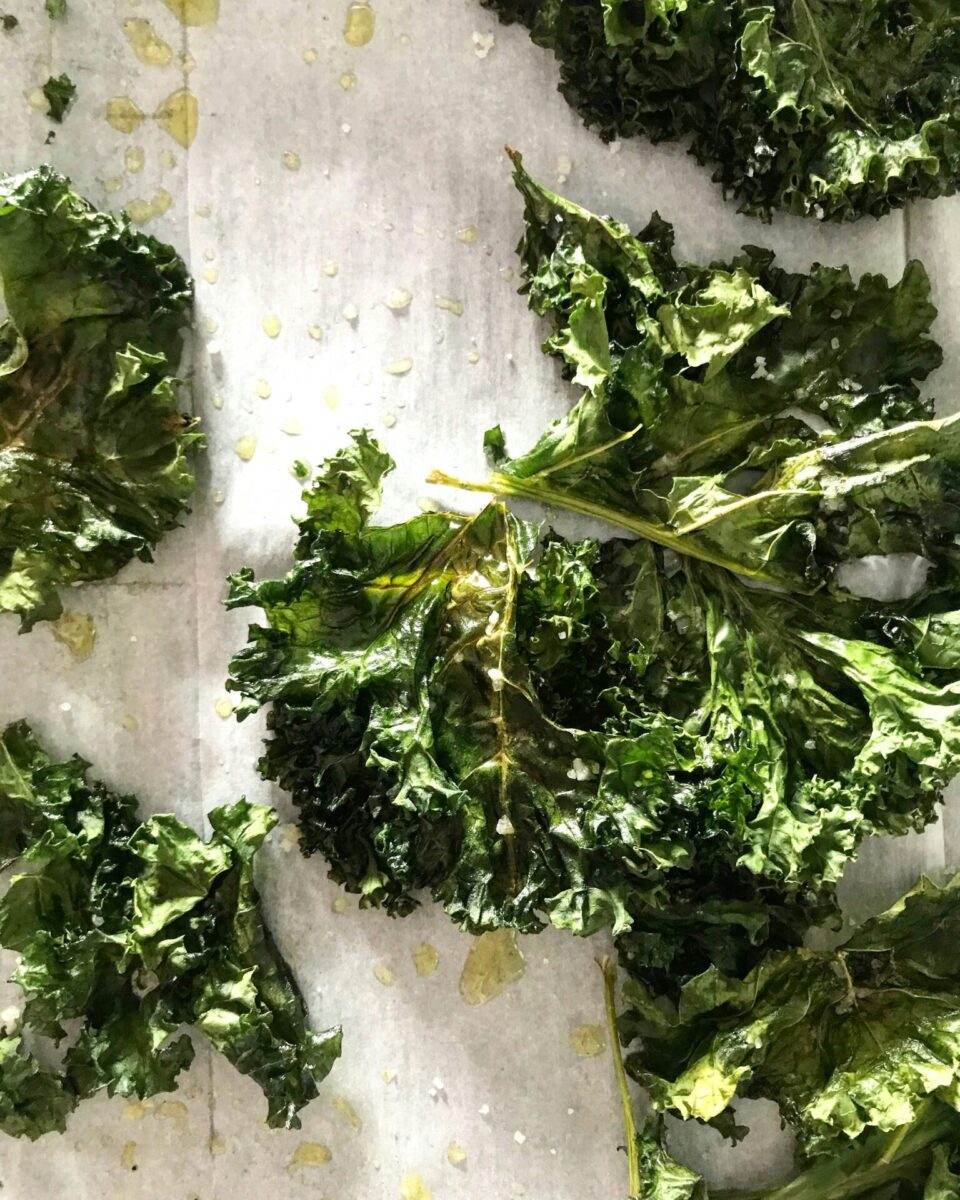Maintaining a healthy gut is essential for overall wellbeing, but navigating the world of nutrition can feel overwhelming, especially for beginners. Fortunately, a variety of gut-friendly foods can support your digestive health and improve your quality of life. In this guide, we will explore what gut-friendly foods really are, why they matter, and how you can easily incorporate them into your daily meals. By understanding the essential nutrients that nurture your gut, you’ll be well on your way to feeling your best. So, let’s dive in and discover the secrets to a happy gut!
Understanding Gut Health: The Basics
Gut health refers to the well-being of your digestive system, which plays a crucial role in overall health. A healthy gut ensures that your body effectively absorbs nutrients, eliminates waste products, and even regulates your immune system. Here’s a breakdown of the essential aspects of gut health:
- Gut Microbiome: The gut is home to trillions of microorganisms, also known as the gut microbiome. These tiny helpers aid in digestion, produce vitamins, and support immune function. A diverse microbiome contributes to a healthier gut.
- Digestive Process: Your digestive system breaks down food into nutrients. When you eat gut-friendly foods, you supply your body with the right ingredients to maintain this vital process.
- Connection to Mental Health: Recent studies suggest that gut health can affect mental well-being. A balanced microbiome may influence mood and cognitive function, highlighting the importance of what you eat.
- Inflammation and Gut Health: An unhealthy gut can lead to inflammation. This condition might result from poor dietary choices or stress, negatively impacting your health.
To nurture your gut, it’s crucial to focus on consuming gut-friendly foods. These foods promote a balanced microbiome, support your digestion, and enhance your overall health. So, consider integrating more gut-friendly options into your meals!

What Are Gut-Friendly Foods?
Gut-friendly foods are those that actively promote a healthy digestive system and support overall gut health. They nourish the beneficial bacteria in your gut microbiome, which plays a critical role in digestion, immunity, and even mental health. Here’s a closer look at what makes foods gut-friendly:
- Fermented Foods: These include yogurt, kimchi, sauerkraut, and kefir. They are rich in probiotics, which help balance gut bacteria.
- High-Fiber Foods: Foods like legumes, whole grains, fruits, and vegetables provide the necessary fiber that fuels gut bacteria and aids digestion.
- Prebiotic Foods: Bananas, onions, garlic, and asparagus are excellent sources of prebiotics, which feed the good bacteria in your gut.
- Healthy Fats: Avocados and olive oil support gut health by reducing inflammation and promoting a healthy gut lining.
- Hydrating Foods: Foods with high water content, such as cucumbers and watermelon, help maintain optimal digestion.
To illustrate the difference between gut-friendly foods and those that might disrupt gut health, consider this comparison:
| Gut-Friendly Foods | Foods to Limit |
|---|---|
| Yogurt | Sugary snacks |
| Whole grains | White bread |
| Leafy greens | Fried foods |
| Berries | Processed meats |
Incorporating a variety of gut-friendly foods into your diet can tremendously boost your gut health and overall well-being!
Top 10 Foods for a Happy Gut
Eating a variety of gut-friendly foods can significantly enhance your digestive health. Here’s a list of the top 10 foods that can help you achieve a happier gut:
- Greek Yogurt
Packed with probiotics, it supports a healthy gut microbiome. - Kefir
This fermented drink is loaded with beneficial bacteria and promotes gut health. - Sauerkraut
Made from fermented cabbage, it’s rich in probiotics and fiber. - Bananas
These are not only great for energy but also provide prebiotics that nourish gut bacteria. - Oats
A fantastic source of soluble fiber, oats contribute to gut-friendly digestion. - Garlic
Acting as a prebiotic, garlic fosters the growth of healthy gut bacteria. - Leeks
Similar to garlic, leeks also contain prebiotics, which help in maintaining a balanced gut flora. - Chia Seeds
These tiny seeds are rich in fiber, promoting regularity and supporting gut health. - Bone Broth
Rich in gelatin, it aids in repairing the gut lining and reducing inflammation. - Berries
Loaded with antioxidants and fiber, berries support overall gut health and protect against negative bacteria.
To sum up, incorporating these gut-friendly foods into your diet can lead to improved digestion and overall well-being. Try mixing and matching these foods daily to keep your gut happy and healthy!
The Role of Probiotics in Digestion
Probiotics play a vital role in maintaining a gut-friendly environment. These beneficial bacteria support your digestive health by promoting the balance of good and bad bacteria in your gut. Here’s how they work:
- Enhance Digestion: Probiotics help break down food and absorb nutrients efficiently. This process reduces symptoms like bloating and gas.
- Support Immune Function: A healthy gut microbiome fortified by probiotics can boost your immune system, enabling it to respond better to infections.
- Prevent Diarrhea: Probiotics are known to prevent antibiotic-associated diarrhea by restoring the gut’s natural balance.
- Synthesize Nutrients: Certain probiotics can produce essential nutrients, such as vitamins B and K, which are important for overall health.
Popular Probiotic Sources
| Food Type | Probiotic Strains | Gut-Friendly Benefits |
|---|---|---|
| Yogurt | Lactobacillus, Bifidobacterium | Supports digestion and immunity |
| Kefir | Lactobacillus, Saccharomyces | Enhances nutrient absorption |
| Fermented Vegetables | Lactobacillus | Promotes gut health and diversity |
| Kombucha | Various strains | Aids digestion and detoxification |
You can click here to buy Kefir from Amazon.
Integrating these gut-friendly probiotics into your diet can significantly enhance your digestive health, making you feel lighter and more energized.

How Fiber Fuels Your Gut Microbiome
Fiber plays a crucial role in maintaining a gut-friendly environment by nourishing the beneficial bacteria in your microbiome. These friendly microbes are essential for proper digestion and overall health. Here’s how fiber works its magic:
- Types of Fiber:
- Soluble Fiber: Dissolves in water and forms a gel-like substance. It can help regulate blood sugar and lower cholesterol.
- Sources: Oats, legumes, apples, and citrus fruits.
- Insoluble Fiber: Adds bulk to your stool and helps food move through your digestive tract.
- Sources: Whole grains, nuts, and vegetables like carrots and broccoli.
- Soluble Fiber: Dissolves in water and forms a gel-like substance. It can help regulate blood sugar and lower cholesterol.
- Key Benefits of Fiber:
- Feeds Good Bacteria: Fermentable fibers serve as food for beneficial gut bacteria, promoting their growth and activity.
- Improves Digestion: A high-fiber diet helps prevent constipation and reduces bloating, leading to a more comfortable digestive experience.
- Balances Gut Health: Regular fiber intake can protect against harmful bacteria, contributing to a gut-friendly microbiome.
Comparison Table of Fiber Types
| Fiber Type | Soluble Fiber | Insoluble Fiber |
|---|---|---|
| Solubility | Dissolves in water | Does not dissolve in water |
| Function | Regulates blood sugar | Adds bulk to stool |
| Sources | Oats, fruits, legumes | Whole grains, nuts, veggies |
Incorporating a variety of fiber-rich, gut-friendly foods into your diet not only supports your digestive health but also enhances your overall well-being.
The Benefits of Fermented Foods
Fermented foods are a treasure trove of gut-friendly benefits that can transform your digestive health. These foods undergo a natural fermentation process, where beneficial bacteria flourish. This not only enhances flavor but also provides a wealth of probiotics—living microorganisms that promote a balanced gut microbiome. Let’s explore the delightful benefits of incorporating fermented foods into your diet:
- Enhanced Digestion: Fermented foods contain enzymes that aid in breaking down food, making it easier for your body to absorb nutrients.
- Improved Gut Microbiome: Regular consumption of these foods helps replenish good bacteria in your gut, supporting a diverse and healthy microbiome.
- Boosted Immune System: A healthy gut improves your immune response, potentially reducing the risk of infections and diseases.
- Better Nutrient Absorption: Fermented foods can increase the bioavailability of vitamins and minerals, allowing your body to harness their full nutritional benefits.
- Mood Regulation: Interestingly, a happy gut often means a happy mind! The gut-brain connection suggests that a balanced microbiome can aid in mood stability and emotional well-being.
Popular Fermented Foods to Consider:
| Food | Probiotic Benefits |
|---|---|
| Yogurt | Rich in Lactobacillus |
| Kefir | Contains multiple probiotics |
| Sauerkraut | High in antioxidants |
| Kimchi | Supports gut diversity |
| Kombucha | Fortifies gut health |
Integrating these gut-friendly fermented foods into your daily routine can lead to remarkable improvements in digestion and overall health. So, why not grab a jar of kimchi or a refreshing glass of kombucha today? Your gut will thank you!
Gluten and Gut Health: What You Need to Know
When discussing gut health, gluten often emerges as a controversial topic. Many people wonder whether gluten is gut-friendly or harmful. Here’s what you need to know:
Understanding Gluten and Its Effects
- What is Gluten?
Gluten is a protein found in grains such as wheat, barley, and rye. For many, gluten is harmless and can be part of a balanced diet. - Celiac Disease
For those with celiac disease, gluten triggers severe immune reactions, damaging the small intestine. A strict gluten-free diet is essential for gut healing in these individuals. - Non-Celiac Gluten Sensitivity
Some people experience discomfort when consuming gluten, leading to conditions like bloating or digestive upset. Identifying and eliminating gluten can often help restore gut balance.
Is Gluten Gut-Friendly?
While gluten can be included in a gut-friendly diet for most, it’s crucial to pay attention to personal tolerance levels. If you suspect gluten may harm your gut, consider these steps:
- Experiment with a Gluten-Free Diet
Try eliminating gluten for a few weeks to gauge your body’s response. - Focus on Whole Foods
Incorporate whole, gut-friendly options like fruits, vegetables, and gluten-free grains (like quinoa or brown rice).
Conclusion
Whether gluten is gut-friendly depends on your unique gut health. By understanding your body’s signals, you can tailor your diet to support a healthier digestive system!

Incorporating Gut-Friendly Foods into Your Diet
Incorporating gut-friendly foods into your daily meals can significantly enhance your digestive health and overall well-being. Here are some practical tips to get you started:
- Start Your Day Right
- Breakfast Choices: Opt for oatmeal topped with berries and a sprinkle of nuts. This combination not only boosts fiber intake but also nourishes your gut flora.
- Snack Smart
- Healthy Snacks: Choose snacks like Greek yogurt or a handful of almonds. Both options are gut-friendly and keep you satisfied between meals.
- Embrace Fermented Foods
- Include Fermented Options: Incorporate foods like kimchi, sauerkraut, or kefir into your lunches and dinners. These are packed with probiotics that benefit gut health.
- Add Variety
- Try New Ingredients: Experiment with different vegetables and grains. Quinoa, lentils, and beets are not only nutritious but also promote a gut-friendly environment.
- Plan Your Meals
- Meal Prep: Set aside time each week to prepare gut-friendly meals. By planning ahead, you ensure you always have nutritious options available.
- Hydrate
- Stay Hydrated: Drink plenty of water throughout the day. Hydration is crucial for maintaining a healthy gut.
By consciously integrating these gut-friendly foods into your diet, you’ll pave the way for a healthier digestive system and improved overall health. Remember, small changes can lead to significant benefits!
Easy Recipes to Boost Gut Health
Incorporating gut-friendly foods into your meals doesn’t have to be complicated! Here are some simple recipes that can enhance your gut health while tantalizing your taste buds.
1. Probiotic Smoothie Bowl
- Ingredients:
- 1 cup of plain yogurt (preferably Greek)
- 1 banana
- ½ cup of berries (e.g., blueberries, strawberries)
- 1 tablespoon of chia seeds
- Instructions:
- Blend yogurt, banana, and berries until smooth.
- Pour into a bowl and top with chia seeds and extra berries for a delightful crunch.
2. Fiber-Rich Quinoa Salad
- Ingredients:
- 1 cup cooked quinoa
- 1 cup chopped vegetables (e.g., cucumber, bell pepper, carrots)
- ¼ cup chickpeas
- Olive oil and lemon juice dressing
- Instructions:
- Mix quinoa, vegetables, and chickpeas in a large bowl.
- Drizzle with olive oil and lemon juice and toss well.
3. Fermented Veggie Wraps
- Ingredients:
- Whole-grain wraps
- ½ cup of sauerkraut or kimchi
- Sliced avocados
- Fresh spinach
- Instructions:
- Spread fermented veggies on the wrap.
- Add avocado and spinach, then roll it up tight and enjoy.
These recipes pack a punch of flavors while being gut-friendly, making them perfect for anyone looking to enhance their gut health in a delicious way!
Common Misconceptions About Gut Health
When it comes to gut health, misinformation abounds! Understanding these misconceptions is key to navigating your journey to a gut-friendly lifestyle. Let’s break down some of the most common myths:
- Myth 1: All probiotics are the same.
Not all probiotics provide the same benefits. Different strains serve different functions, making it important to choose the right one based on your specific gut health needs. - Myth 2: A good gut means no digestive issues.
While a gut-friendly diet often leads to improved digestion, it doesn’t guarantee you won’t face occasional issues. Factors like stress and certain medications can still disrupt gut health. - Myth 3: You don’t need fiber if you eat plenty of fruits and vegetables.
Fruits and veggies are great sources of fiber, but many people still fall short of their daily fiber requirements. Incorporating whole grains, legumes, and nuts ensures your gut microbiome thrives. - Myth 4: Only young people need to focus on gut health.
Gut health is important at every age! Everyone, regardless of their age, can benefit from a gut-friendly diet to support overall well-being.
By dispelling these misconceptions, you can better understand how to create a balanced and supportive environment for your gut, paving the way for a healthier future.

Tips for Maintaining a Gut-Friendly Lifestyle
Maintaining a gut-friendly lifestyle is easier than you think! By incorporating certain habits, you can positively impact your gut health every day. Here are some tips to help you on your journey:
- Stay Hydrated: Drinking plenty of water supports digestion and the absorption of gut-friendly nutrients. Aim for at least 8 cups a day!
- Balance Your Diet: Focus on a variety of foods rich in fiber, probiotics, and healthy fats. Include fruits, vegetables, whole grains, and fermented foods like yogurt and kombucha.
- Listen to Your Body: Pay attention to how certain foods affect your digestion. This can help you identify any food sensitivities and build a personalized, gut-friendly meal plan.
- Practice Mindful Eating: Slow down and savor your meals! This not only enhances your eating experience but also aids digestion.
- Stay Active: Regular exercise boosts your gut health by increasing the diversity of gut bacteria. Aim for at least 30 minutes of moderate exercise most days.
- Manage Stress: Chronic stress can disrupt gut health. Consider meditation, yoga, or simply taking time to relax.
By following these simple tips, you can create a gut-friendly lifestyle that supports both your digestive health and overall well-being. Remember, small changes can lead to significant improvements over time!
Frequently Asked Questions
What are gut-friendly foods?
Gut-friendly foods are items that promote a healthy digestive system by supporting the balance of good bacteria in the gut. These foods typically include high-fiber options like fruits, vegetables, whole grains, and legumes, as well as fermented foods such as yogurt, kefir, sauerkraut, and kimchi. Incorporating these foods into your diet can enhance digestion, reduce inflammation, and improve overall gut health.
How can I start incorporating gut-friendly foods into my diet?
To begin adding gut-friendly foods to your diet, start slowly by incorporating one or two new items each week. Experiment with adding more fruits and vegetables to your meals, enjoy whole grains like quinoa or brown rice, and consider including fermented foods. You might also want to try swapping out your snacks for nuts, seeds, or yogurt. Gradually increasing your intake of fiber-rich foods will help your digestive system adjust comfortably.
Are there any foods I should avoid for better gut health?
Yes, certain foods can hinder gut health and should be limited. Highly processed foods, excessive sugar, and artificial sweeteners can disrupt the balance of gut bacteria. Additionally, fried foods and those high in unhealthy fats can promote inflammation. It’s advisable to be mindful of your consumption of red and processed meats as well. Opting for cleaner, whole sources of food can significantly improve your gut health.
Can gut-friendly foods improve my overall health?
Absolutely! Consuming gut-friendly foods not only improves digestive health but can also enhance your immune system, boost energy levels, and improve mental clarity. A healthy gut is linked to better mood regulation and lower levels of anxiety and depression. By nurturing your gut microbiome with the right foods, you’re not only taking care of your digestion but also contributing to your overall well-being.
How do I know if my gut is healthy?
Signs of a healthy gut vary but often include regular bowel movements, minimal bloating, and a general sense of well-being. You might also notice improved energy levels and clearer skin. If you’re experiencing issues like persistent bloating, irregular bowel habits, or discomfort, it may indicate an imbalance in your gut health. Keeping a food diary can help you monitor how your body reacts to different foods, helping you make necessary adjustments.
